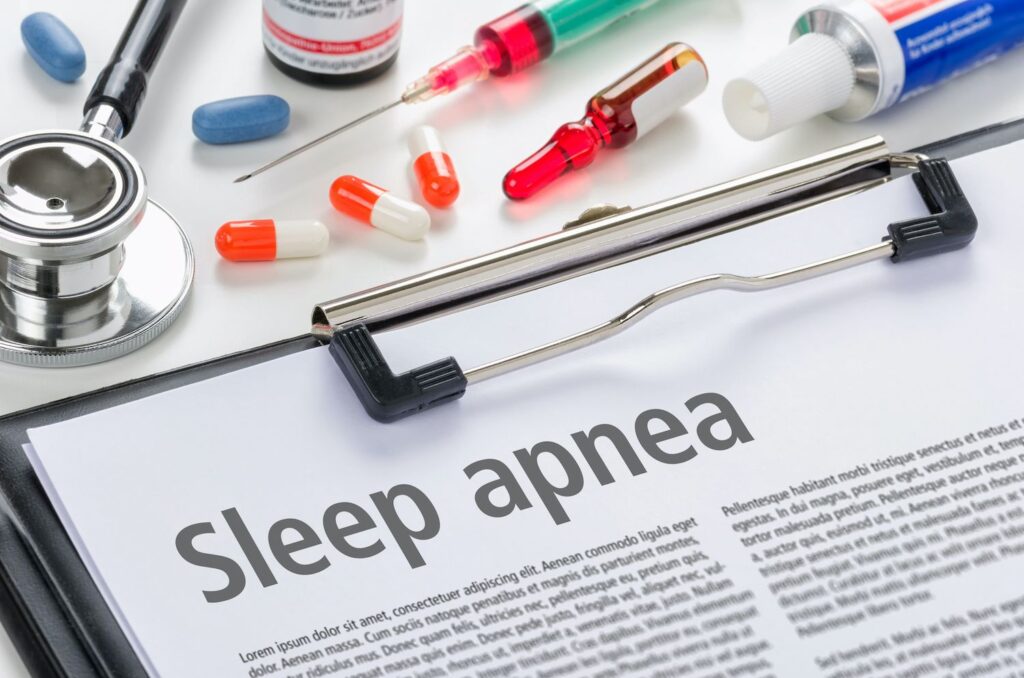Picture this: a serene night’s sleep tucked under your cozy blanket, with dreams dancing in your mind. Little do you know that your teeth might be playing a role in the quality of your slumber. There is a unique connection between your teeth and sleep apnea. Therefore, it is crucial to see your dentist if you feel you have sleep apnea. Also, your dentist can help identify sleep apnea during your routine visits.

Sleep Apnea 101
Sleep apnea is not just snoring. It is a potentially dangerous sleep disorder that can affect many areas of your health. Specifically, it is a disorder where your breathing repeatedly stops and starts during sleep. The culprits? Often, relaxed throat muscles and tissues temporarily block your airway.
The Snoring Symphony and Dental Clues
Frequent snoring can be the first clue that something’s amiss. When you snore, your throat muscles are working overtime. This can impact your teeth over time. The vibrations from snoring may also cause micro-fractures in your teeth, setting the stage for dental issues.
Nighttime Grinding: More Than Just a Bad Dream
Ever wake up with a headache or sore jaw? If so, you might be grinding your teeth at night. This is a condition known as bruxism. Studies suggest a strong association between bruxism and sleep apnea. The stress and strain on your teeth from grinding can lead to enamel erosion and even fractures.
Dry Mouth: The Silent Nighttime Intruder
Saliva is your mouth’s natural defender against bacteria. With sleep apnea, breathing interruptions can contribute to dry mouth. When your mouth is dry, it becomes a haven for bacteria. As a result, it can put your teeth at risk for decay and gum disease.
Connecting the Dots: How Sleep Apnea Affects Your Oral Health
Here’s the link: sleep apnea disrupts your sleep, leading to tiredness and fatigue. When you’re exhausted, your oral hygiene routine may suffer. Skipping brushing or flossing sessions become more likely. This can also pave the way for cavities and gum issues.
Protecting Your Teeth in the Sleep Apnea Saga
Fear not! There are ways to safeguard your teeth while managing sleep apnea:
Night Guards: If you grind your teeth, a custom-fitted night guard can act as a shield, preventing further damage.
Hydration Habits: Combat dry mouth by staying hydrated. Sip water throughout the day to keep your mouth moist and bacteria at bay.
Regular Dental Check-ups: Routine dental visits are your front line of defense. Your dentist can also spot early signs of dental issues and recommend preventive measures.
Sleep Apnea Treatment: Addressing sleep apnea itself can be a game-changer. Continuous Positive Airway Pressure (CPAP) machines and other treatments can enhance your sleep quality, indirectly benefiting your oral health. Furthermore, your dentist can create custom oral appliance therapy to reduce your symptoms.
